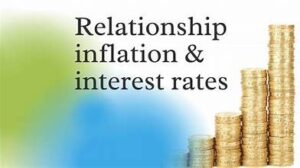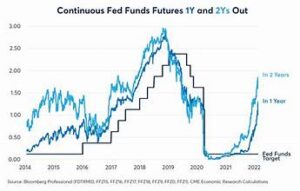The property market is a dynamic landscape influenced by various economic factors. Among these, inflation and interest rates play crucial roles in shaping market trends and influencing homebuyers’ decisions. Understanding their impact can help prospective buyers navigate the complexities of the real estate market effectively. In this article, we will explore how inflation and interest rates affect the property market and provide key insights for homebuyers.
1. The Impact of Inflation on the Property Market
Inflation refers to the rate at which the general level of prices for goods and services rises, eroding purchasing power. When inflation is high, the cost of living increases, which can have several implications for the property market:
- Rising Property Prices: Inflation often leads to higher construction costs and increased material prices. As these costs rise, property developers may pass them on to buyers, resulting in increased property prices. For homebuyers, this means that the cost of purchasing a home may rise over time, making it essential to act sooner rather than later.
- Increased Cost of Living: As inflation affects everyday expenses, individuals might find it more challenging to save for a down payment. This can delay the home-buying process or reduce the amount buyers can spend on a property.
- Investment in Real Estate: In times of high inflation, real estate is often seen as a hedge against inflation. Property values and rental incomes generally increase, making real estate an attractive investment option. Buyers looking for long-term value might consider investing in property to safeguard their assets.
2. Interest Rates and Their Effect on Homebuyers
Interest rates significantly impact the property market, particularly in relation to mortgage affordability:
- Mortgage Rates: Interest rates determine the cost of borrowing money for a mortgage. When interest rates are low, mortgage rates decrease, making it cheaper to borrow and leading to lower monthly mortgage payments. Conversely, higher interest rates increase borrowing costs, which can make homeownership less affordable.
- Housing Demand: Lower interest rates typically stimulate demand in the property market as more buyers can afford to enter the market. This increased demand can drive up property prices. On the other hand, higher interest rates may dampen demand, leading to a slower market and potentially lower property prices.
- Refinancing Opportunities: For existing homeowners, changes in interest rates provide opportunities to refinance their mortgages. Lower rates can lead to significant savings on monthly payments or the ability to pay off the mortgage faster.
3. The Interplay Between Inflation and Interest Rates
Inflation and interest rates are interrelated, and their interaction can have complex effects on the property market:
- Central Bank Policies: Central banks, such as the Federal Reserve in the U.S., adjust interest rates to control inflation. When inflation is high, central banks may increase interest rates to curb spending and reduce inflation. Higher rates can slow down the property market as borrowing becomes more expensive.
- Economic Uncertainty: Inflation can create economic uncertainty, influencing central bank decisions on interest rates. In periods of high inflation, central banks might implement tighter monetary policies, which can impact mortgage rates and overall housing affordability.
4. Key Insights for Homebuyers
Understanding how inflation and interest rates affect the property market can help homebuyers make informed decisions:
- Monitor Economic Indicators: Keep an eye on inflation rates and central bank interest rate decisions. These indicators can provide insights into future trends in mortgage rates and property prices.
- Evaluate Affordability: Consider how current interest rates affect your mortgage affordability. If rates are low, it may be a good time to purchase a property or refinance an existing mortgage. If rates are high, assess your budget and explore alternative financing options.
- Plan for Inflation: Factor in potential future increases in inflation when planning your home purchase. Consider locking in a fixed-rate mortgage to protect against rising interest rates and increasing property costs.
- Consult Financial Advisors: Engage with financial advisors or mortgage brokers who can provide personalized advice based on your financial situation and the current market conditions.
Conclusion
Inflation and interest rates are critical factors shaping the property market, influencing property prices, mortgage affordability, and overall market dynamics. For homebuyers, understanding these factors can provide valuable insights into making informed purchasing decisions. By staying informed about economic trends and consulting with experts, buyers can navigate the property market more effectively and make decisions that align with their financial goals.




